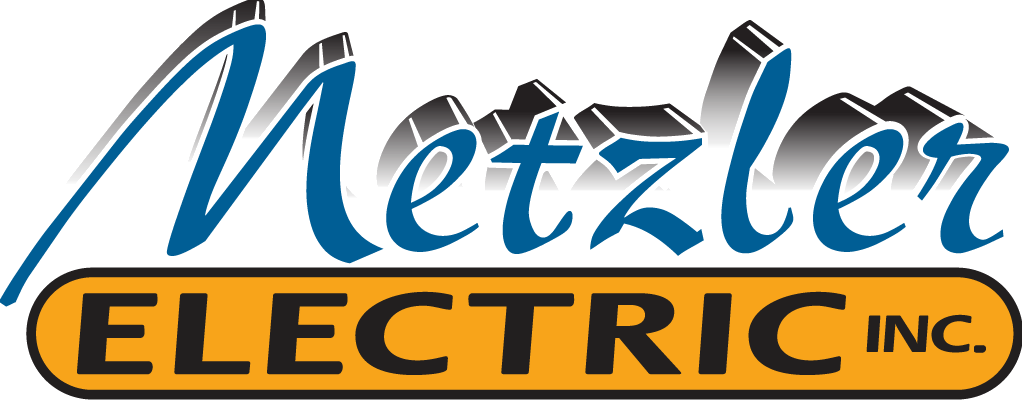Common Electrical Problems in Older Wisconsin Homes & How to Fix Them
Older homes in Wisconsin, especially those built before the 1970s, often have outdated electrical systems that can pose safety hazards, inefficiencies, and frequent issues. From knob-and-tube wiring to overloaded circuits, these problems can lead to flickering lights, frequent breaker trips, or even fire risks.
If you own an older home in Green Bay, Appleton, or elsewhere in Wisconsin, understanding these common electrical problems—and knowing how to fix them—can help keep your home safe and functional.
1. Outdated Wiring (Knob & Tube or Aluminum Wiring)
The Problem:
Many older Wisconsin homes still have knob-and-tube (K&T) wiring, which was common before the 1950s. This system lacks a grounding conductor, has brittle insulation, and is not designed for modern power demands. Another issue is aluminum wiring, used in the 1960s and 70s, which can overheat and cause fire hazards due to oxidation.
Signs You Have Outdated Wiring:
– Frequent blown fuses or tripped breakers
– Discolored or warm outlets
– Flickering lights
– Burning smell from outlets
The Fix:
– Full rewiring is the safest solution, replacing old wiring with modern copper NM (Romex) wiring.
– If rewiring isn’t immediately possible, an electrician can install AFCI/GFCI breakers to reduce fire and shock risks.
– For aluminum wiring, pigtailing with copper connectors or using CO/ALR-rated outlets can mitigate hazards.
2. Insufficient Electrical Capacity (Too Few Circuits)
The Problem:
Older homes were built when households used far fewer appliances. Many have 60-amp service panels (or even 30-amp fuse boxes), which can’t handle modern demands like air conditioners, computers, and kitchen gadgets.
Signs of an Overloaded System:
– Breakers trip frequently
– Lights dim when appliances turn on
– You rely heavily on extension cords or power strips
The Fix:
– Upgrade to a 200-amp panel (standard for modern homes).
– Add dedicated circuits for high-power appliances (e.g., refrigerators, HVAC systems).
– Install subpanels if rewiring the entire home isn’t feasible.
3. Ungrounded Outlets (Two-Prong Plugs)
The Problem:
Many older homes have two-prong ungrounded outlets, which lack a safety ground. This makes them unsafe for modern three-prong devices (computers, surge protectors, etc.).
Signs You Need Grounding Upgrades:
– You use cheater plugs (three-to-two adapters)
– Electronics experience power surges
– Outlets spark when plugging in devices
The Fix:
– Replace two-prong outlets with GFCI outlets (code-approved solution if grounding isn’t possible).
– Rewire with a grounding conductor for full protection.
– Install whole-house surge protection to safeguard electronics.
4. Faulty or Old Circuit Breakers
The Problem:
Breakers wear out over time. In older homes, you might still have Federal Pacific (FPE) or Zinsco panels, which are known to fail and cause fires.
Signs of Bad Breakers:
– Breaker trips constantly (even with normal load)
– Burning smell near the panel
– Breaker feels hot to the touch
The Fix:
– Replace the entire panel if it’s a Federal Pacific or Zinsco brand.
– Upgrade to modern Square D, Siemens, or Eaton panels for reliability.
– Have an electrician test breakers for proper function.
5. Overloaded or Daisy-Chained Wiring
The Problem:
Older homes often have too few outlets, leading homeowners to use extension cords or daisy-chain power strips, which can overheat and cause fires.
Signs of Overloaded Circuits:
– Outlets feel warm
– Frequent tripping when multiple devices are plugged in
– Flickering lights when using appliances
The Fix:
– Install additional outlets where needed.
– Separate high-load appliances onto different circuits.
– Avoid daisy-chaining power strips—use UL-listed surge protectors instead.
6. Poorly Installed or DIY Electrical Work
The Problem:
Many older homes have handyman wiring—spliced wires, loose connections, or improper junctions that can cause shorts or fires.
Signs of Shoddy Wiring:
– Outlets or switches work intermittently
– Buzzing sounds from outlets
– Visible exposed or taped wires
The Fix:
– Hire a licensed electrician to inspect and repair improper wiring.
– Replace old junction boxes with properly secured ones.
– Ensure all splices are in approved junction boxes (not hidden in walls).
7. Lack of GFCI Protection in Wet Areas
The Problem:
Older homes often lack GFCI (Ground Fault Circuit Interrupter) outlets in kitchens, bathrooms, and basements—a major safety risk near water.
Signs You Need GFCIs:
– Outlets near sinks or laundry areas are standard two-prong
– Frequent shocks when using appliances near water
The Fix:
– Install GFCI outlets in all wet locations (required by modern code).
– Test GFCIs monthly to ensure they trip properly.
8. Flickering or Dimming Lights
The Problem:
Flickering lights can indicate loose wiring, voltage fluctuations, or overloaded circuits—common in older homes.
Possible Causes & Fixes:
– Loose bulb? Tighten it first.
– Loose wiring in fixtures? Have an electrician check connections.
– Voltage drops when appliances run? Upgrade wiring or add a dedicated circuit.
9. Outdated or Unsafe Light Fixtures
The Problem:
Vintage fixtures may have cloth-insulated wires or lack proper grounding, posing fire risks.
The Fix:
– Replace old fixtures with modern, UL-listed ones.
– Ensure proper junction box support (some old fixtures hang only by wires).
10. Rodent-Damaged Wiring
The Problem:
Mice and squirrels chew through wires in attics and walls, causing shorts.
Signs of Rodent Damage:
– Unexplained circuit trips
– Chew marks on wires (visible in basements or crawl spaces)
The Fix:
– Inspect and replace damaged wiring.
– Seal entry points to prevent future infestations.
Final Thoughts: When to Call a Professional
While some fixes (like replacing outlets) are DIY-friendly, major electrical work in older homes should be handled by a licensed electrician. If your Green Bay home has:
✔ Frequent breaker trips
✔ Burning smells from outlets
✔ Two-prong ungrounded wiring
✔ Knob-and-tube or aluminum wiring
…it’s time for an electrical safety inspection.
Need Help in Green Bay?
If you’re in Wisconsin and dealing with old wiring issues, contact Metzler Electric to assess your home’s electrical system safely.

